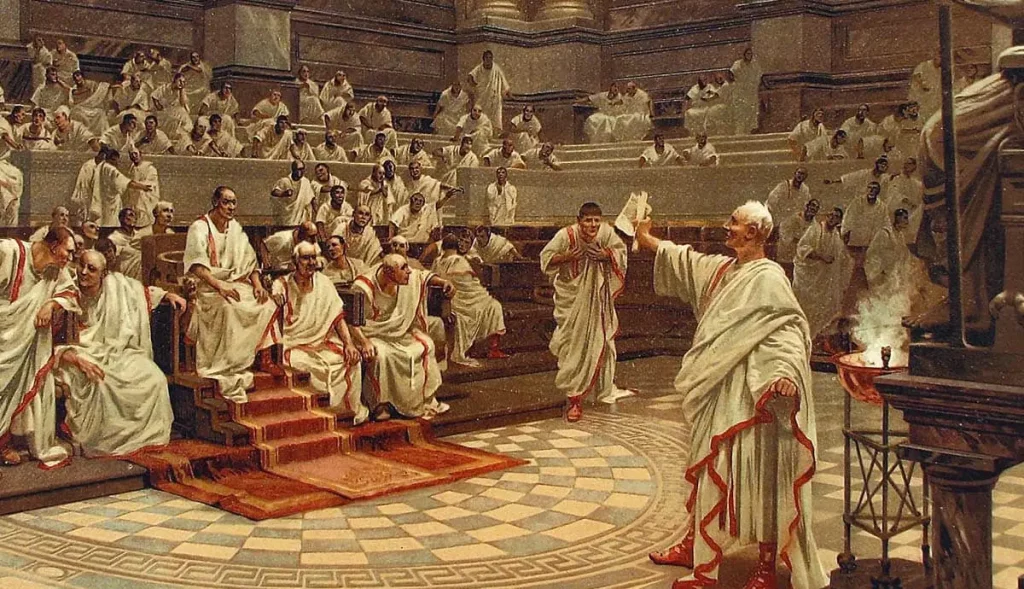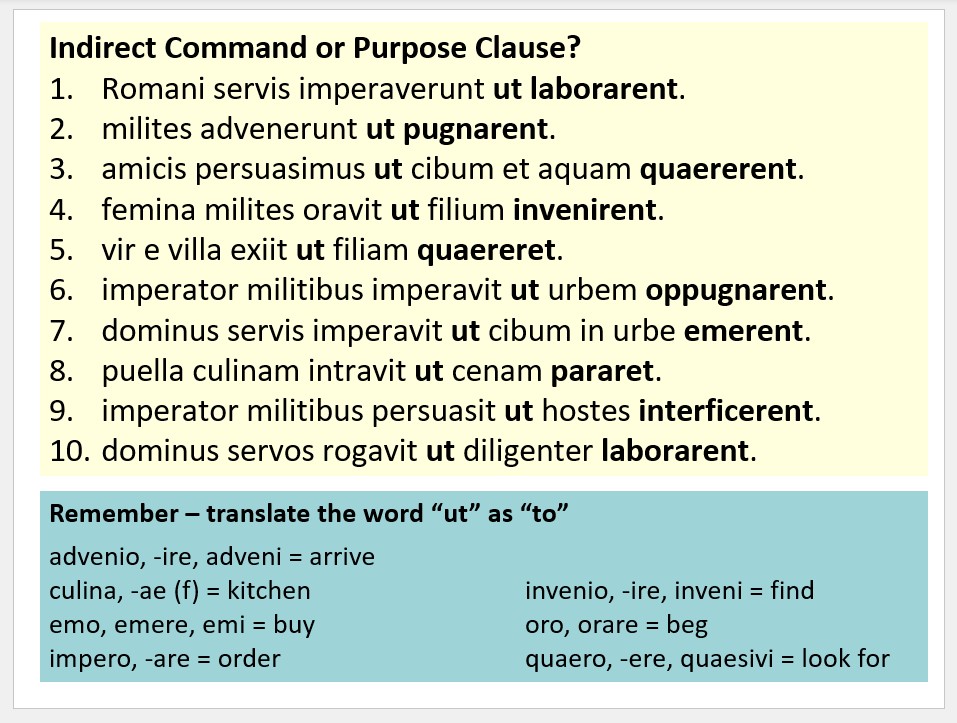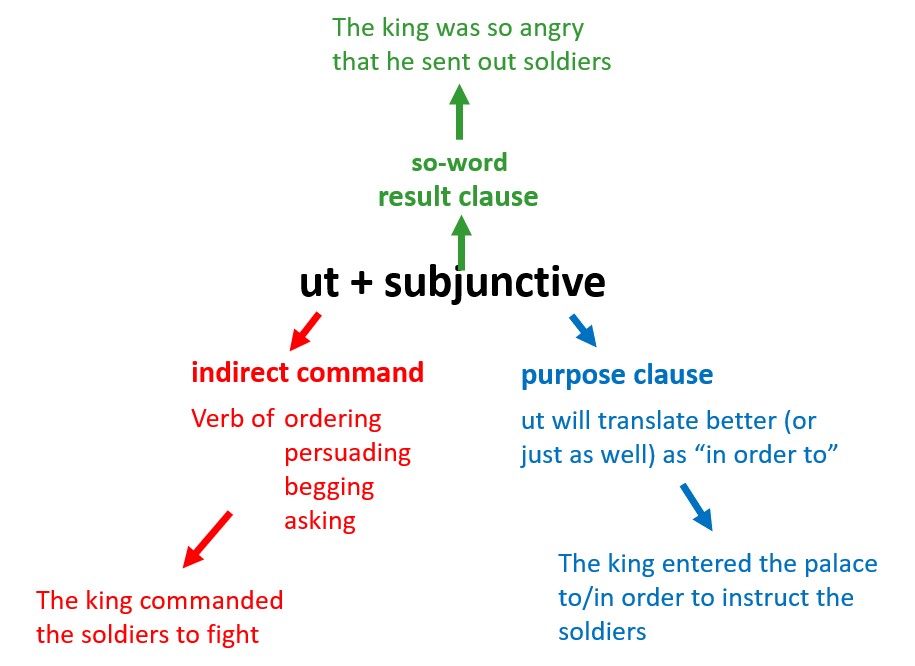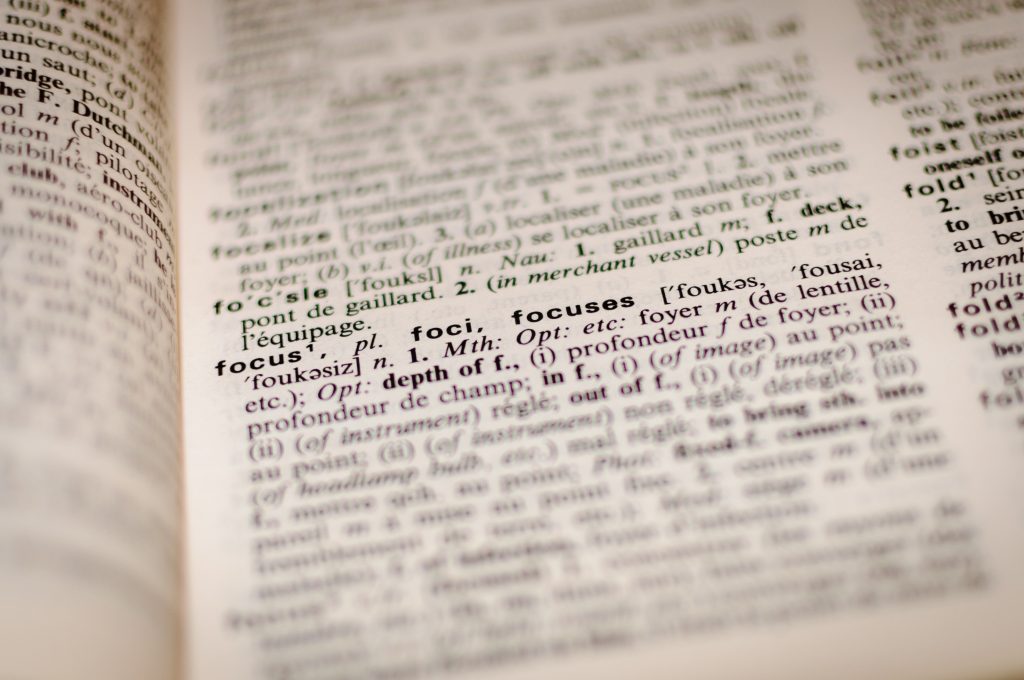Students are often surprised and puzzled when I point out to them that English is not very comfortable with the passive voice. It’s not our most natural way of speaking, which may go some way towards explaining why students find the passive voice difficult to translate. For example, while Latin slides into the passive voice in the imperfect and future tenses quite simply with its alternative set of endings, English makes one heck of a meal out of this: who on earth really wants to say “he was being carried” or “he will be carried”?
Despite this, and this is another thing I like to point out to my tutees, the passive voice is used for very distinct purposes in the English language. First of all, it is used in scientific writing. When writing up an experiment, students are taught to write that “the powder was placed into the test tube” rather than “I put the powder in the test tube”. In scientific writing, this tradition stems from the principle that we should take the individual out of the process and focus on the process itself, removing any other distractions or influences. This then carries forward as a tradition in all academic writing in all fields, although I note with some dismay that this appears to be changing. O tempora! O mores!
The passive voice in scientific writing is a tradition because the person conducting the experiment is not (or should not be) the focus of the experiment. Likewise, another purpose for which the passive voice can therefore be used is in order to separate an event from its cause. Consider the difference between saying “Emma broke the vase” and “the vase was broken (by Emma)”. Not only is the person who broke the vase separated from the action, they don’t even need to be named for the action to make some kind of sense: the accident just happened.
This kind of passive speaking is used to great effect is by public figures – in particular, politicians. The phrase “mistakes were made” even has its own Wikipedia entry, so synonymous is it with political double-speak. The phrase, described by the New York Times as a “classic Washington linguistic construct” allows a politician to sound as if they or their party are taking responsibility for something without actually doing so and without even articulating what they are taking responsibility for. Despite the fact that journalists have poked fun at this phrase since it was first used as early as the 19th century, politicians continue to roll it out on a regular basis. Listen out for it – you’ll be amazed how often it or something very like it pops up.
There are yet more creative ways in which the passive voice can be used other than merely distancing yourself from responsiblity. If you want to create a straw man argument and so ridicule a view that nobody actually holds, how about saying “what we are being asked to believe”? “What we are being asked to believe here is that young people are incapable of making any kind of decision.” Who is actually asking us to believe this? Erm, nobody; we’re just “being asked” to believe it by persons unspecified – straw men, if you will. The passive voice makes this rhetorical trick viable, effective and convincing. (Nice tricolon, I know). Similarly, if you wish to give more credibility to a position than it truly deserves, then make it sound like the consensus view by using the perfect passive participle — drop in that a position is “long held” or “long agreed-upon”. Long held or long agreed-upon by whom, exactly? Well, nobody knows or seems to care.
One of my hobbies is listening out for ancient rhetorical techniques as employed by modern politicians (or rather their speech writers, as since the Age of Spin I am somewhat cynical about the degree to which any of our modern leaders write their own material). Many of the techniques learned, employed and taught by the greatest speech-writers of the Roman era can still be heard in the House of Commons today. A very basic version of the same skills are indeed taught in schools, as students are still expected to learn how to write persuasively in their English language GCSE. The passive voice is an often-overlooked and thus dangerously insidious technique. Do not let the speakers fool you with it. Or, I should say, do not be fooled (by them).








